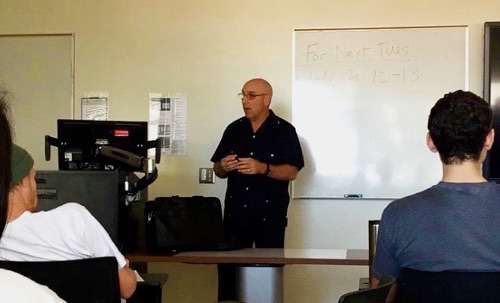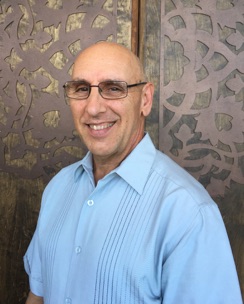Black and American Indian lives certainly matter. By this I mean that they should matter even though the history of the U.S. fails to sufficiently demonstrate it. But simply because millions of folk in the U.S. fail to sufficiently respect Black and American Indian lives does not mean that those lives do not matter, morally speaking. Of course Black and American Indian lives matter. It is a sad fact about U.S. society that such statements even have to be made. What is even more disappointing, morally speaking, is that many folk do not even understand that the statement needs to be made, and sometimes loudly. It is as if such folk have moral amnesia and are out of touch with the lengthy history of abuses committed against Blacks and American Indians throughout the U.S. and what ought to be done about it. (see Corlett, Heirs of Oppression) It is as if such folk do not even concern themselves with the racism that confronts Blacks and American Indians on a regular basis.
Of course, when making the statement, “Black and American Indian lives matter,” I am making a generalization about groups in order to make a general moral point. It is common knowledge that each ethnic group, just like each political group, etc., contains members who do not have the same moral standing as others in the group. In other words, every sizable group contains some members who, quite frankly and morally speaking, do not matter. For instance, former U.S. president George W. Bush does not matter as he started an unjust war that eventuated in the unjust killings of, by some estimates, almost one million innocent persons. Former U.S. president Andrew Jackson carried out policies against American Indians that led to the genocide of millions of such persons as well as the morally unjustified theft of Indian lands. Former Senator Joseph McCarthy did about as much as one could do to disrespect the First Amendment rights to freedom of expression of U.S. citizens. Surely the lives of such evildoers do/did not matter, except to those who have a troubled morality that would somehow attempt to justify the evils of such “persons.” But this hardly implies that White lives in general do not matter generally and morally speaking. So the correct response to “Black lives matter” is not that “All lives matter,” because that would imply that evildoers matter--which they do not. “Black and American Indian lives matter” is a generalization of groups of people whose lives are treated with less care in U.S. society and deserve more respect than is otherwise afforded to most other groups and in greater measure. One tragic irony is that if Jackson, McCarthy and Bush were to walk the streets today, they would never be treated by law enforcement in the manner in which they deserve. They would stand no realistic chance of being shot to death or otherwise killed for no good reason. And that is likely because they are/were not Black in America.
“The stereotype of Black Americans as violent and criminal has been documented by social psychologists for almost 60 years. (Allport & Postman, 1947; Correll, Park, Judd, & Wittenbrink, 2002; Devine, 1989; Duncan, 1976; Greenwald, Oakes, & Hoffman, 2003; Payne, 2001; Sagar & Schofield, 1980) Researchers have highlighted the robustness and frequency of this stereotypic association by demonstrating its effects on numerous outcome variables, including people’s memory for who was holding a deadly razor in a subway scene (Allport & Postman, 1947), people’s evaluation of ambiguously aggressive behavior (Devine, 1989; Duncan, 1976; Sagar & Schofield, 1980), people’s decision to categorize nonweapons as weapons (Payne, 2001), the speed at which people decide to shoot someone holding a weapon (Correll et al., 2002), and the probability that they will shoot at all. (Correll et al., 2002; Greenwald et al., 2003) Not only is the association between Blacks and crime strong (i.e., consistent and frequent), it also appears to be automatic (i.e., not subject to intentional control). (Payne, 2001; Payne, Lambert, & Jacoby, 2002)” [Eberhardt, et al., “Seeing Black: Race, Crime, and Visual Processing,” Journal of Personality and Social Psychology, 87 (2004), 876]
With this scientific information in mind, it is no wonder that for decades now it appears that White, Brown and even some Black police officers seem a bit quick to fire their lethal weapons on Blacks--even when some such Blacks are not only unarmed, but are moving away from the officers and thus posing no immanent threat of serious harm to others. Since there is a significant tendency of most in U.S. society to perceive Blacks as being dangerous, there is in the minds of many police officers some sort of “justification” for the escalation of lethal force when at least in many cases non-lethal force would suffice to handle the situation. In other words, many folk, including many police officers, think something thusly of Black criminal suspects: “He’s Black, he is dangerous, I must be on special heightened alert and ready to shoot.” Then often all it takes is for the unjustified fear of Blacks to lead to impatience and a certain kind of movement by the Black suspect for some officers to shoot rather than to treat the matter as if the suspect were White. In some cases, officer patience born out of greater respect for the value of Black lives would likely lead to fewer fatal shootings and the use of non-lethal force.
The sad fact is that Black lives seem not to matter as they should, and Blacks are deemed by many as being unworthy of proper respect, dignity and rightful treatment. Worse still is the seeming unwillingness of the justice systems to address such problems with due care and diligence, almost as if no police officer is worthy of being charged with and duly found guilty of at least manslaughter and the prison term that might rightly accompany it. Is there no shame of the law enforcement unions with regard to such unjust police killings? Is it really that plausible to think that all such police killings of Blacks are justified? A recent incident in Dallas, TX has taught us that some US citizens are willing to randomly kill police officers when the system breaks down in favor of police officers some of whom seem to be using excessive lethal force. One question here is whether or not police departments and their powerful unions are willing to stand aside and submit for due process and appropriate punishment some of their own who, after adequate due process, commit such acts when they are harmful wrongdoings. And when they are so unwilling to do so, how much worse are they than the vatican when it deliberately seeks to protect from the law its myriads of child molesting priests? Whether it is child rape by priests or unjust killings by cops, it is deserving of harsh forms of punishment as determined by law. For no one is supposed to be above the law (as we are equal under the law) and this includes the vatican powers and police officers.
It is a moral fact that Black and American Indian lives matter. If their lives do not matter, then no lives matter!
--Professor J. Angelo Corlett, PhD




